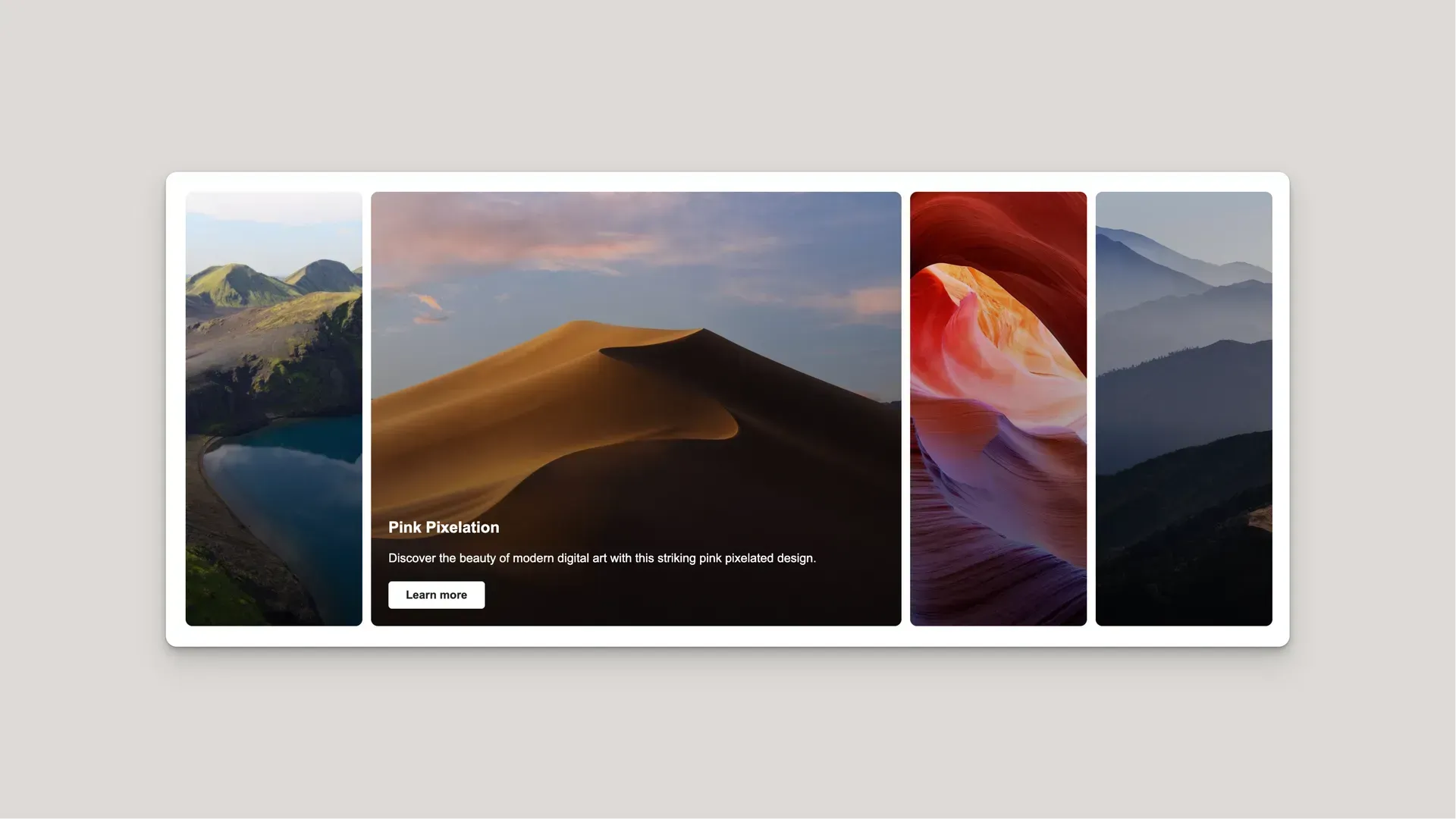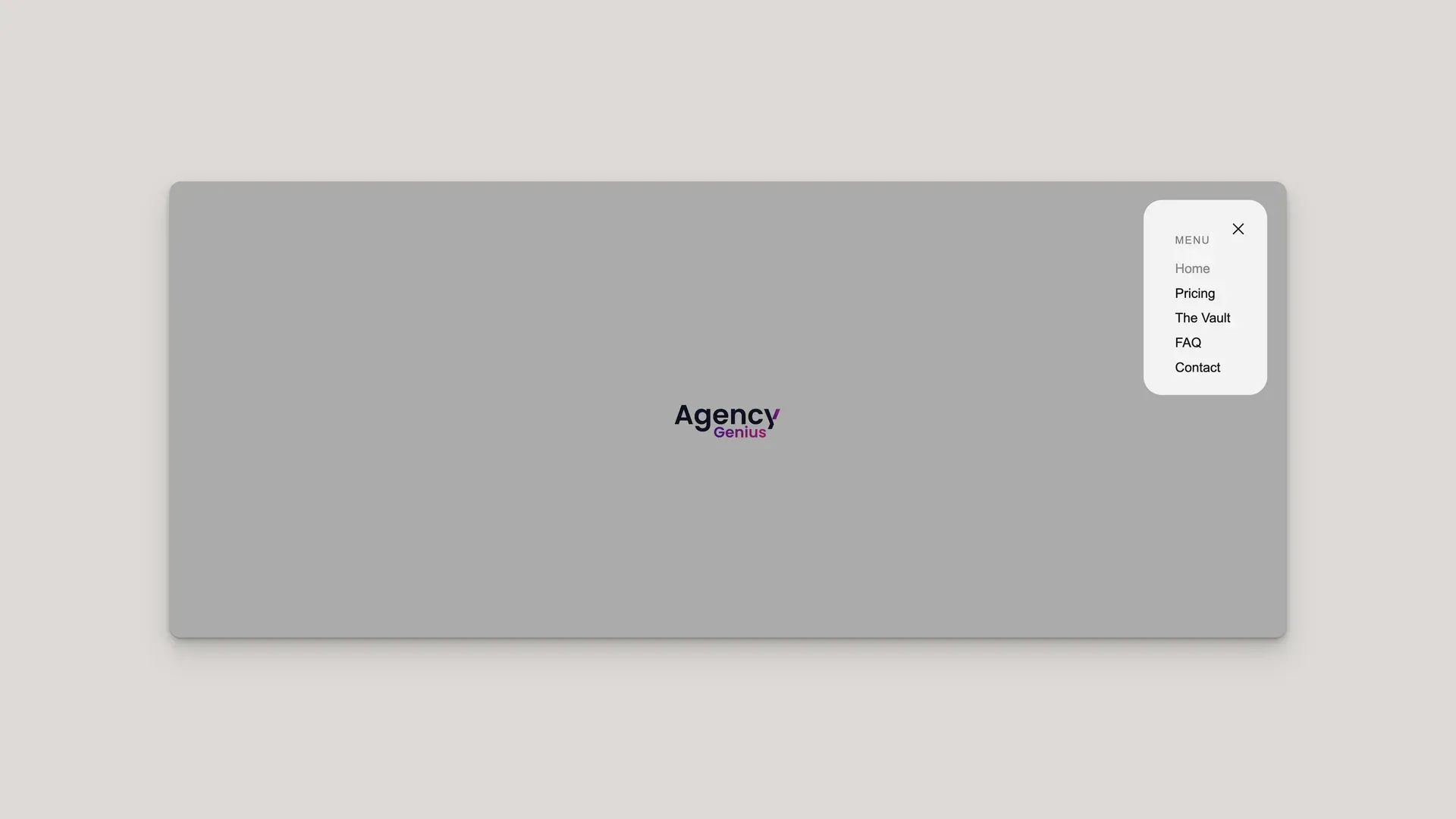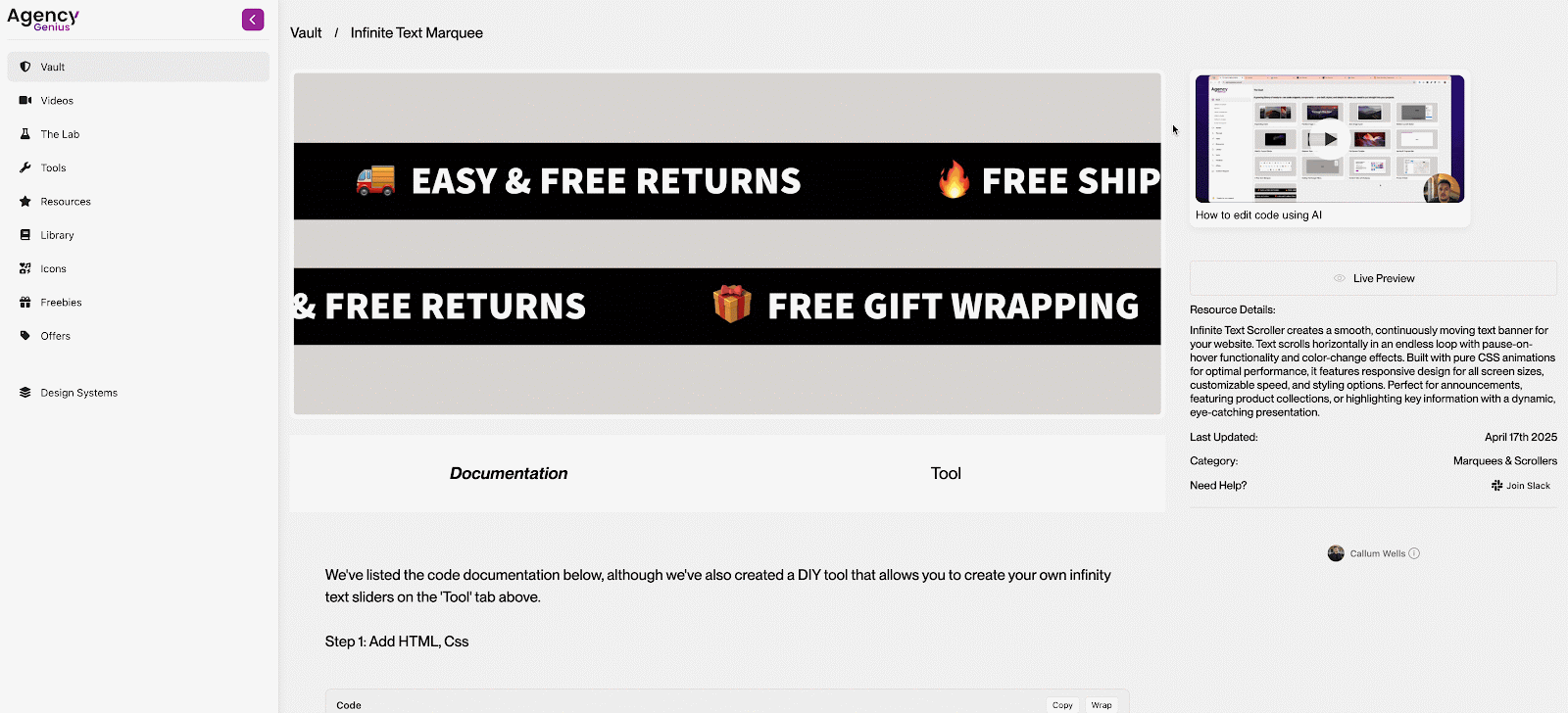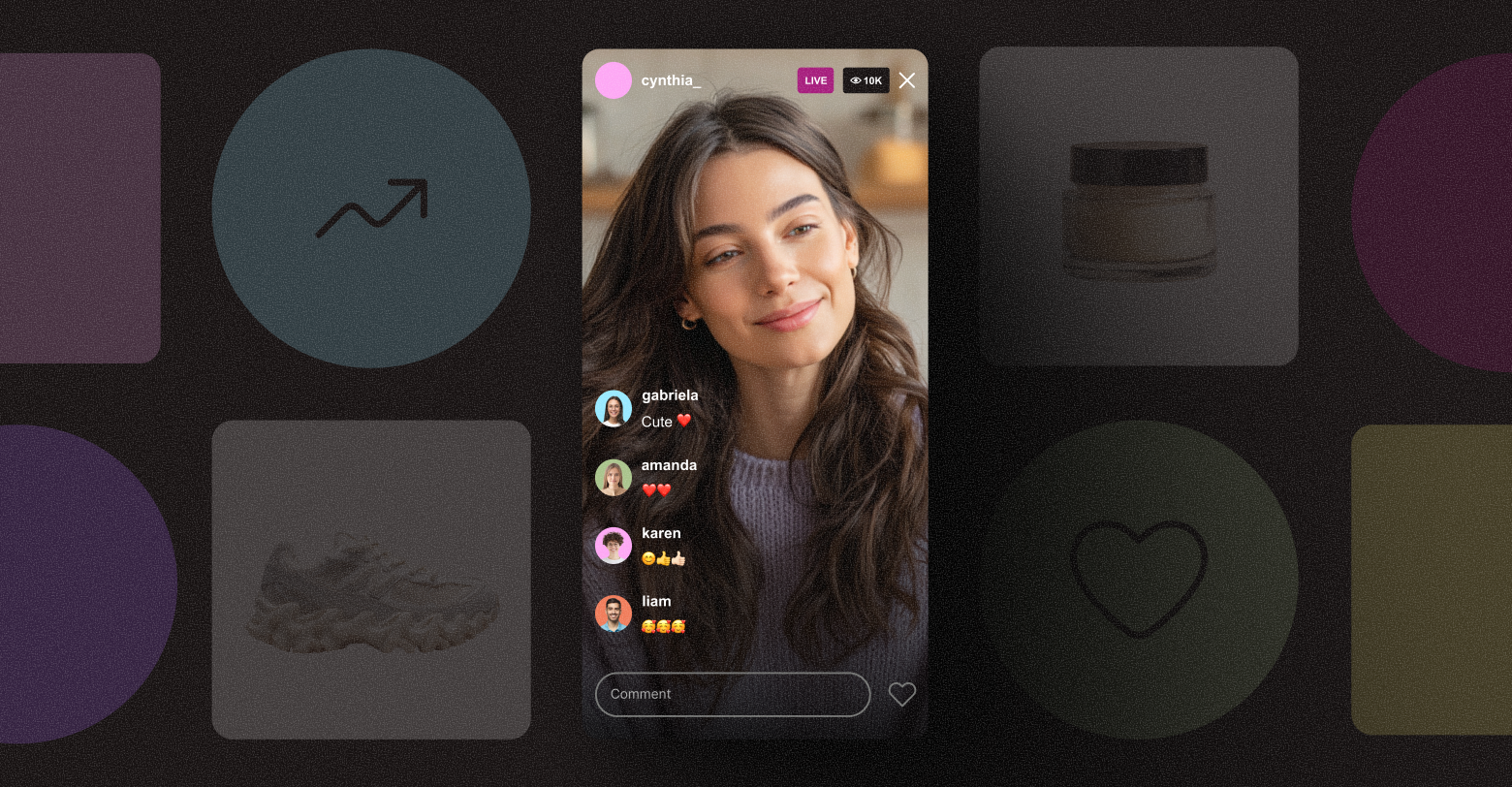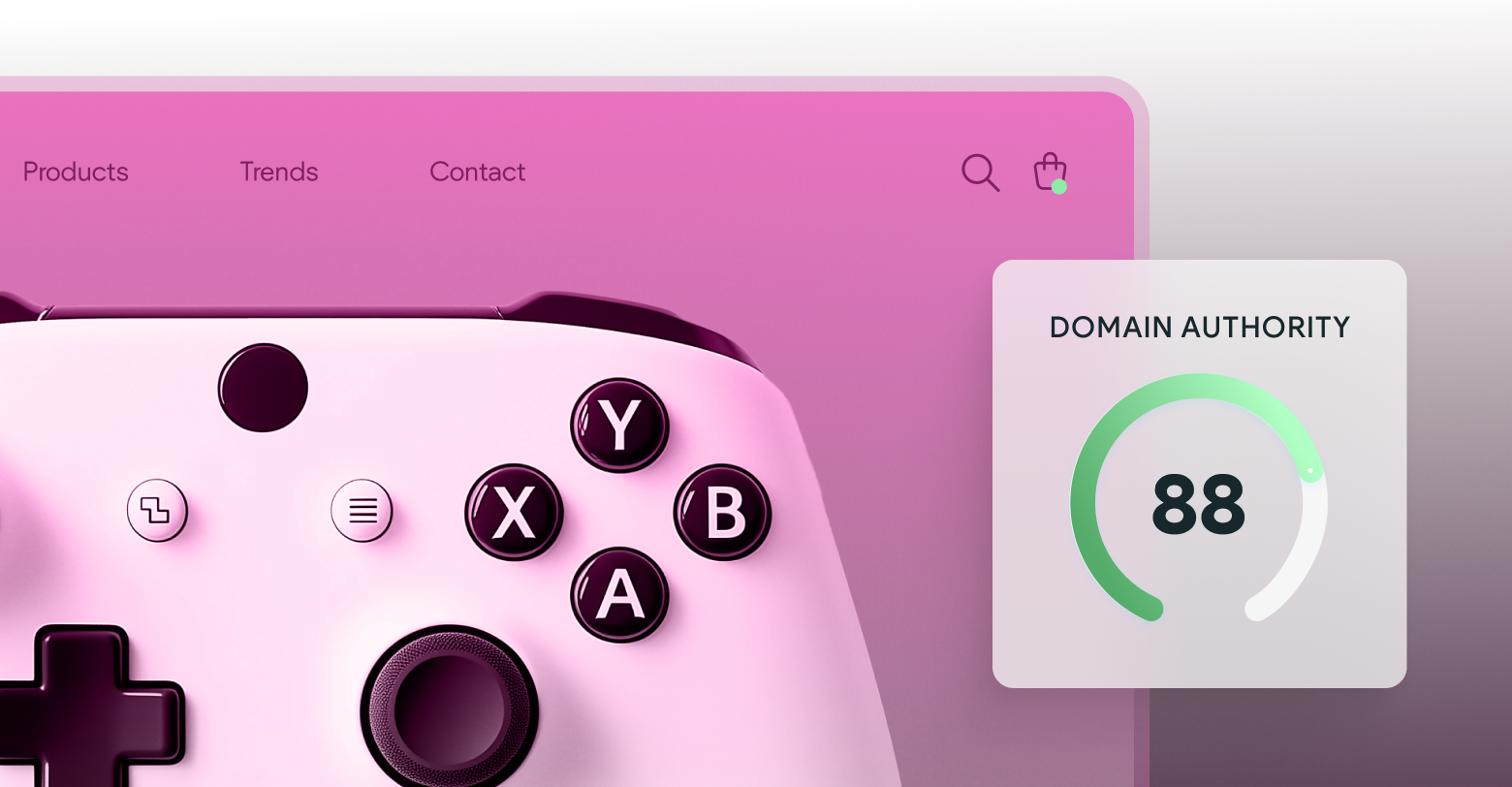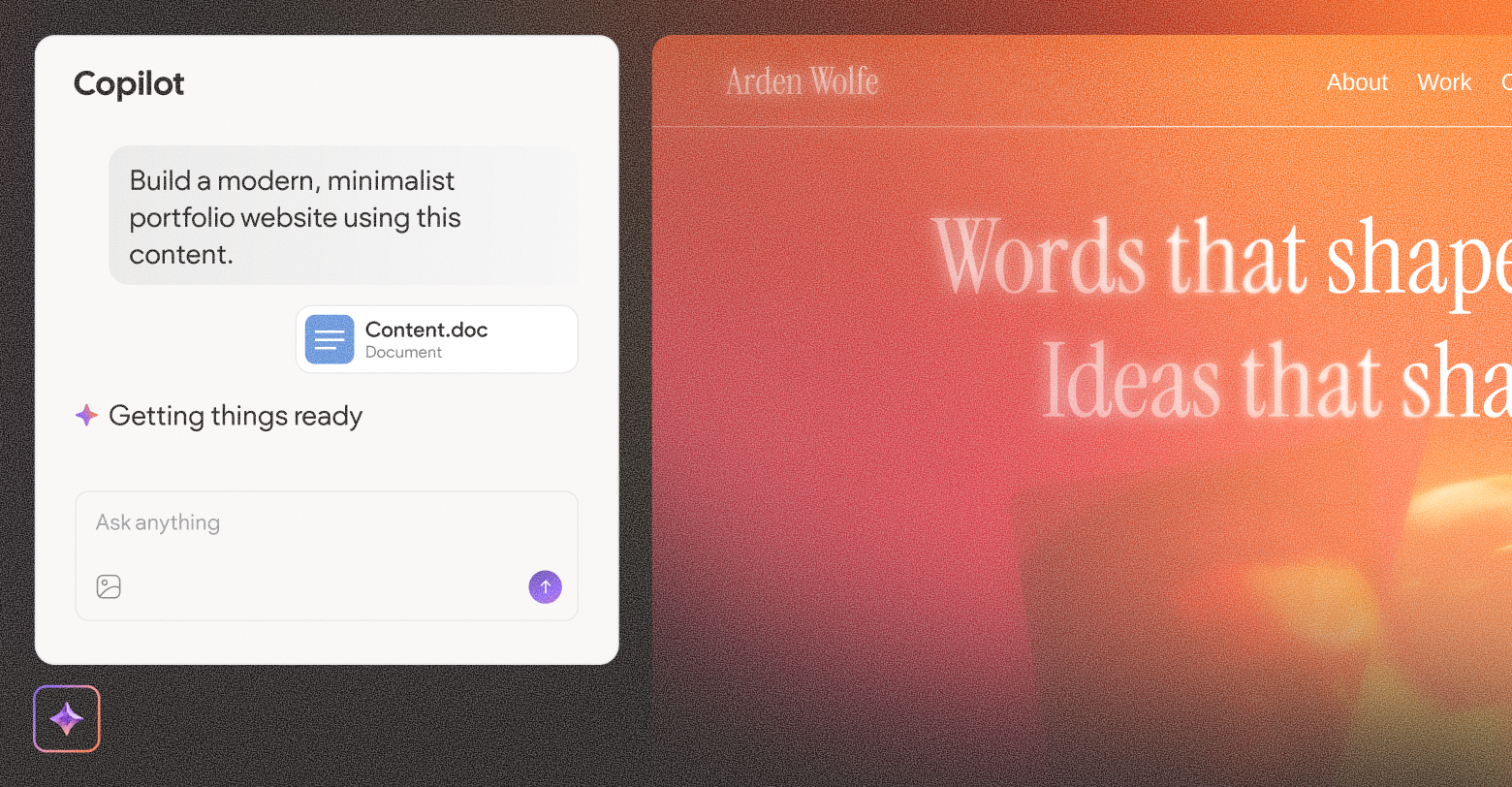As an agency owner,
Callum Wells is all about pushing creative boundaries. He started building websites on the side about five years ago, before taking the leap from marketing professional to full time
agency owner at the beginning of 2024. Since then, he’s raced towards the limits of nearly every website builder he’s touched.
Callum deeply values thoughtful, innovative design. Frequently inspired by unique website elements like interactive elements and engaging content displays, he often finds himself asking, “Could I build something similar on Duda?” It’s precisely this curiosity that has led him to incorporate artificial intelligence into his workflow - particularly to solve the “final mile” challenge in web design.
No website builder can realistically support every conceivable design combination. There’s always a trade-off between customization and usability, too many options would overwhelm users. While many website builders aim to get designers “close enough,” his ambition is to bridge the gap completely.
An AI-powered widget factory
These days, Callum wears a few hats. He’s an agency owner, a
marketing consultant, and a developer. Although, developer may not be the correct terminology. Rather, the way he toes the line between writing code and instructing AI is more akin to a conductor, orchestrating various artificial intelligence tools to create something great.
You see, it’s not enough to open up ChatGPT and ask for a widget. He frequently emphasizes the human skill behind AI tools.
"I like to compare the use of AI to chefs," he said. "Some chefs hold Michelin stars, others don’t. Generally, Michelin-star chefs produce superior dishes. Similarly, AI models produce the best results when used skillfully by someone who understands their nuances. Some people are better than others, but it is a learnt skill."
His agency, WebHero, actively uses multiple AI models, each chosen for their unique strengths. Claude, particularly following their upgrade to
Claude 4 Opus, stands out to him as one of the market's top models for generating code. Alternatively, he prefers ChatGPT for tasks like copywriting, with numerous other models playing key roles as well in various aspects of his workflow.
With the right tool, and the right guardrails, all that’s left to do is prompt. This part, too, is not as easy as it sounds. Callum found the process of prompting new widgets into existence was one that involved a lot of trial and error, often requiring multiple iterations. Models cannot intuit what you mean—as lovely as that might be. Context is everything.
A great looking widget that functions well on desktop, for example, may not be responsive on mobile if you don’t specifically prompt for that functionality.
"Being explicit is key," Callum warns. He finds it helpful to explain to the model exactly how the code should function on Duda. In addition to his thorough prompting, he has Google Docs files filled with support and API documentation to provide the models with even more context.
Developing this context has been a labor of love. Over the past twelve months, Callum has invested hundreds of hours perfecting these prompts and refining his interactions with different models. He's found that explicitly instructions and detailed context significantly enhance the output of these models.
All of this context comes at a price, which he pays in the form of tokens. Adding platform documentation, dozens of guardrail prompts, and explicit descriptions per widget can chew through usage allotments fast—particularly on free plans, and especially when iterating through designs.
Of course, Callum is not using the free version of these tools. He invests significantly in his process, to the tune of nearly $600 per month. Some of those tools include:
- Claude Max
- Manus Pro
- Super Grok
- Perplexity Pro
- ChatGPT
These tools are his orchestra.
Widgets, widgets, widgets
Callum likes to, in his own words, "think beyond what is possible," when it comes to website design. When Callum encounters an engaging or unique website element, his first instinct is always the same: take a screenshot, pop it into Claude, and quickly generate exactly what he envisioned using carefully refined prompts. Within seconds, AI produces functional, responsive components that traditionally required extensive custom coding.
Through this efficient workflow, Callum has accumulated a diverse collection of custom AI-generated components, including infinite scrollers, swipeable containers, draggable stickers, expandable cards, and scaling hamburger menus—to name a few.
Callum shared the generated code with us below.
Expandable cards
Callum's "Expanding Cards" widget adds click-to-expand card animations to your site. You can get the full code, alongside his write-up, at
AgencyGenius.co.
Scaling hamburger menu
Callum's "Scaling hamburger menu" widget adds an elegant, animated menu to your site. You can get the full code, alongside his write-up, at
AgencyGenius.co.
What does he do with all of these widgets?
The best part of working with AI is how conversational it is. You can take the embedded code and paste it into another AI model (Callum recommends Claude), then customize it to your liking through natural language prompts.
Again, the key is to provide clear, contextual instructions specific to each component. For example, with his Expandable cards widget, you are likely going to need some kind of image or video for each card. He recommends uploading these assets to Duda, copying the URL, then sharing it with Claude to modify his provided code.
Of course, a big risk of working with any AI model is hallucinations. He recommends concluding your prompt with some kind of guardrail, such as:
"Make no other changes beyond what’s specified, and ensure the output remains neatly contained within an HTML <div> class, with all CSS and JavaScript included inline."
Once you start to get a grasp of the finesse required to generate high-quality website elements, you might find the process a little addictive. So addictive, in fact, that before long you could become flush with widget after widget. At least, Callum did.
That's why he chose to share his work.
AgencyGenius, Callum's repository for custom website elements, was born from Callum's direct experience and desire to empower others. Members gain access to a curated vault of pre-built, AI-ready components. They simply copy these components and prompt their own AI models with natural language to rapidly adapt and customize designs.
His work comes in the form of either copy-and-paste HTML, or more native Custom Widgets fully integrated into the Duda platform.
An example of how AgencyGenius distributes code to its members.
The finishing touch on AgencyGenius is his educational component, which includes clear demonstrations exploring how to build components from scratch, as well as a robust prompt library.
Callum describes AgencyGenius as a toolbox he would’ve liked to have had five years ago when he first started building websites on the side. In addition to website elements, he offers development resources, tools, inspiration, and a slack community to his members—all intended to help them grow.
The future of AI-powered agencies
More and more, agencies are exploring fulfilment and productization. TheCamel, a longtime
Duda Expert, offers a similar, albeit more comprehensive, toolbox with their "All Access" program.
CommonNinja, as well, offers many widgets, both free and paid, on their website as well as on
Duda’s app store.
What makes AgencyGenius so remarkable is that the entire initiative is truly a one-man show. At Duda we talk a lot about the efficiency gains to be had with AI. We write about the power of AI, host webinars that discuss it, and develop new features based on it. Yet, Callum truly embodies it. He is living proof of what an “AI Agency” can be.
"I'm far too humble to say that I have truly done this on my own," he said. "The fact is that this wouldn't have been possible without a platform like Duda and their new Editor 2.0 is an incredible solution that, in my opinion, all agencies should be using. Not just because of its White Label benefits, but because it is truly the most reliable platform of all the ones I've used. WebHero is beginning the transition of all websites to Duda. I'm incredibly proud that AgencyGenius is 100% built on Duda… with a little bit of help from AI."
Two years ago, Duda’s CEO, Itai Sadan, penned an article for this blog titled “Beyond the hype: What AI means for agencies.” In that piece, Itai stated “Fortunately, I don’t believe that AI will replace agencies. While AI is indeed reshaping how SMBs run their businesses, the value of the agency is here to stay. However, agencies will need to restrategize the way they support their clients and create value.” During our interview, Callum made a similar statement, claiming that “AI won’t replace agencies, [but it will] push [them] forward. The most successful businesses will be leveraging AI in every aspect of their [workflows.]”
We’re finally starting to see what that next generation of agency might look like.
Ready to start building your own widgets?
Callum’s advice for agencies exploring widget creation with AI is straightforward: Stay informed. AI is evolving rapidly, with new models and approaches appearing frequently. Keep up with podcasts, newsletters, and industry thought leaders - some of Callum’s personal favorites being:
Most importantly, he encourages designers and agency owners to approach AI primarily as a creative amplifier. Focus first on design possibilities rather than purely functional concerns, and you’ll consistently produce better, more compelling results.
Have you experimented with AI-generated widgets? Share your experiences with the
Duda Community on Facebook!



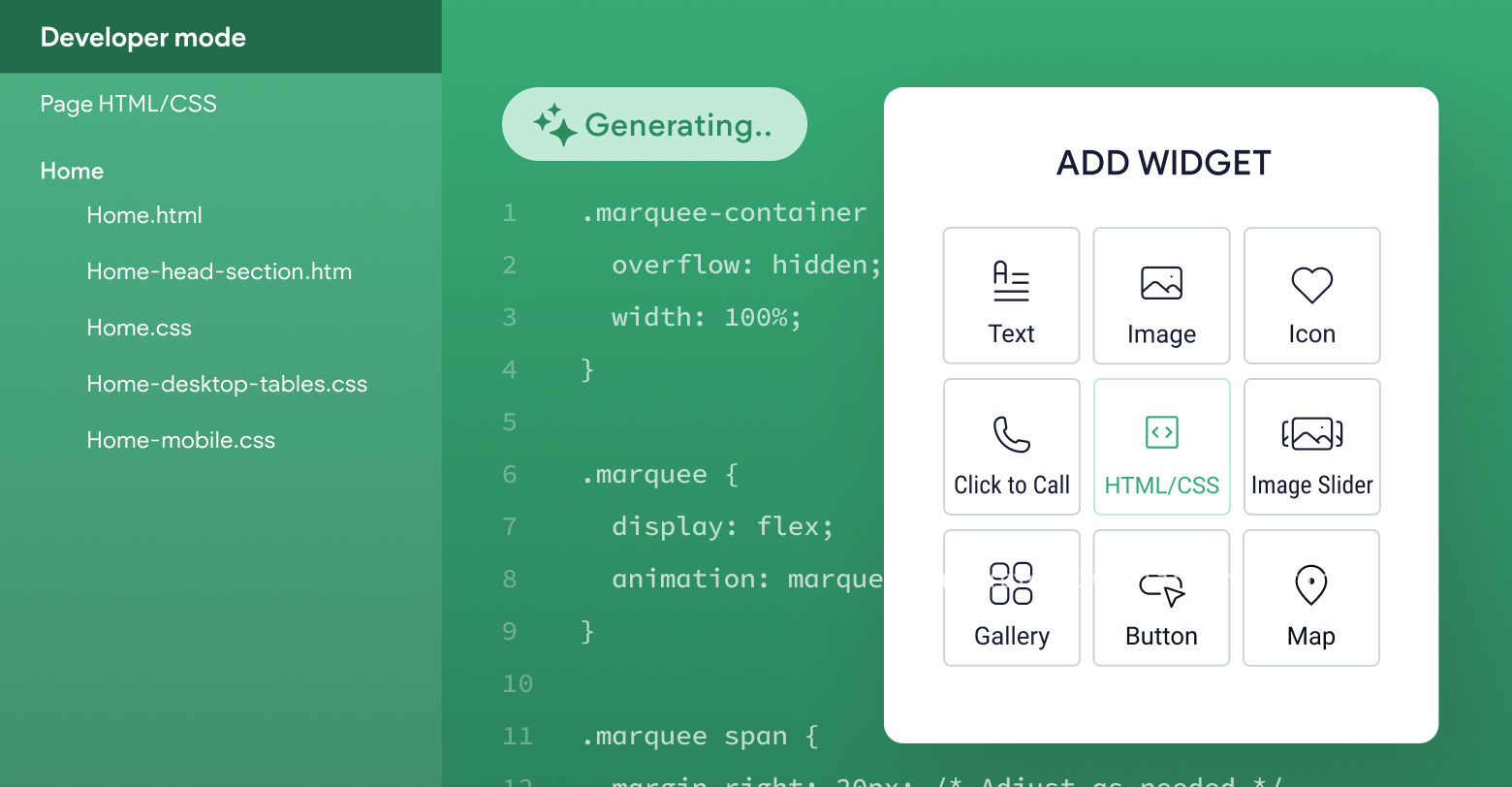
 Top Tip
Top Tip